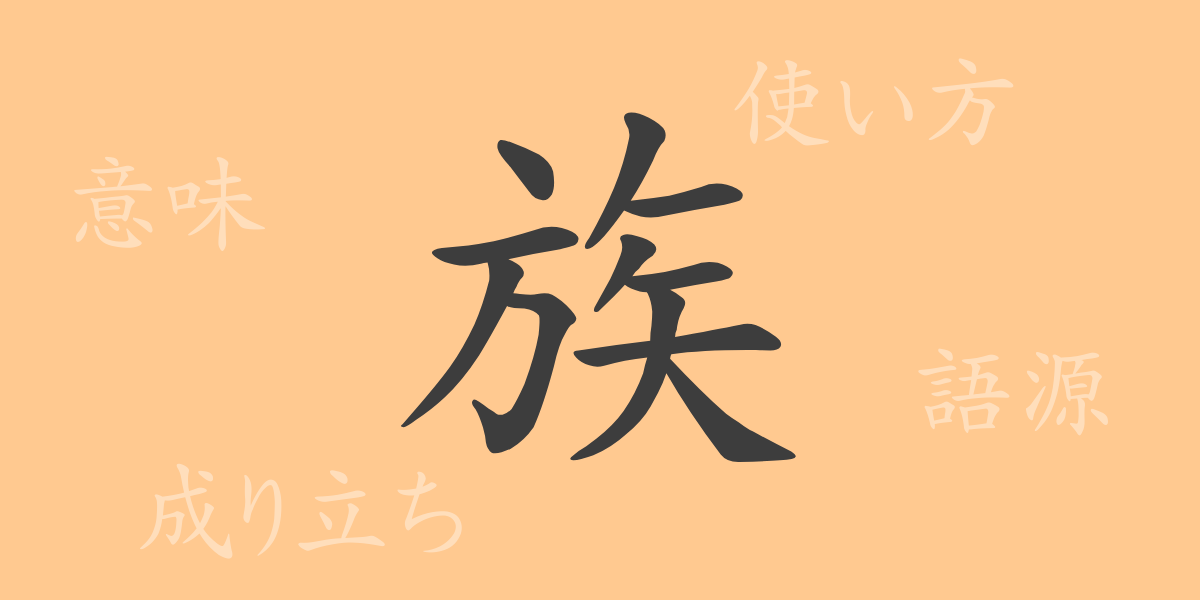The meaning and history behind each Kanji character reflect the depths of a nation’s culture and language. “族” (ゾク) (zoku), a common Kanji used extensively in Japan, is no exception. This article explores the multi-faceted appeal of “族” from its origins to modern usage and its presence in various idioms and proverbs.
Origin of “族” (zoku)
The origin of the Kanji “族” can be traced back to ancient China. The earliest form of this character was written in seal script, which depicted people surrounding a fire, symbolizing a group bound by blood or locality—essentially, a ‘tribe.’ Over time, this character evolved to represent more abstract concepts of a ‘group,’ and it continues to be used in various contexts today.
Meaning and Usage of “族” (zoku)
In modern Japanese, “族” has two main meanings: it refers to a group of people related by blood, such as a family or clan, and it can also describe a group united by common traits like hobbies or professions. Examples include subculture groups or political families. Thus, “族” can convey different nuances depending on the context in which it is used.
Readings, Stroke Count, and Radical of “族” (zoku)
The Kanji “族” has various readings and structural features:
- Readings: On’yomi “ゾク”, no specific Kun’yomi.
- Stroke Count: 11 strokes.
- Radical: 方 (ほう) (hou).
Idioms, Phrases, and Proverbs Using “族” (zoku) and Their Meanings
There are many idioms and phrases that include “族,” each illustrating the richness of its usage in Japanese:
- “一族郎党” (いちぞくろうとう) (ichizokuroutou) – Refers to all members of a family or all related individuals.
- “財閥族” (ざいばつぞく) (zaibatsuzoku) – Denotes a family controlling a large corporation, symbolizing economic power.
- “言わぬが花” – A proverb meaning “some things are better left unsaid,” but here “花” (flower) hints at “華族” (かぞく) (kazoku), suggesting the virtues of the nobility.
Conclusion on “族” (zoku)
The Kanji “族” has continued to be an integral part of the language, reflecting people’s lives and culture from its formation to the present. It is indispensable for expressing social connections and identities, whether it refers to familial bonds or groups with shared interests. Through this article, we have gained a deeper understanding of the rich meanings and uses of “族,” enriching our knowledge of Japanese language and culture.

























